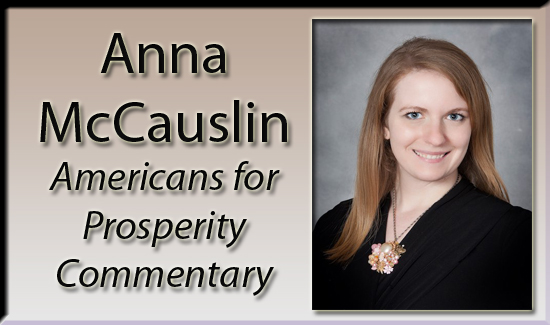Minimum Wage Hike = Fewer Jobs, Less Hours

Americans for Prosperity urged Congress to reject the Raise the Wage Act, legislation that would lift the mandatory federal minimum wage to $15 an hour. The current federal minimum wage, which was set by Congress in 2009, is $7.25 an hour.
Americans for Prosperity is for breaking down barriers, and certainly remaining in poverty is a tremendous barrier to success. However, the government arbitrarily raising the wage does not lift people out of poverty. It actually causes many to lose the job they have. While entry-level jobs aren’t meant to support a family, they do give new workers, or those workers needing a second chance, the ability to bone up on the skills they can’t teach you in college – how to show up on time, to work hard, get along with your colleagues, respect your boss, your customers and yourself, and many other valuable traits that will be used in a profession or long-time career.
Multiple studies have shown that minimum wage hikes hurt the people they intend to help – and those least able to afford it. In fact, a professor at the University of California Irvine found that 85-percent of the studies performed on the subject of minimum wage found that an increase in the minimum wage coincided with a decrease in employment – either individuals losing their job, or losing hours.
A team of researchers at the University of Washington examined the effect of Seattle’s wage increase from $9.47 per hour to $13 per hour and, in 2017, concluded that it led to about 5,000 workers losing their jobs and to low-wage workers losing an average of $125 every month. When the government raises the wage arbitrarily – instead of wage rising according to market forces – people become unemployed, or their hours are decreased. Workers who were able to get 40 hours, may get cut. In the end, workers aren’t making more money, which is the desired outcome of minimum wage increase supporters.
In general, increasing the minimum wage tends to reduce employment in two ways. First, higher wages increase the cost to employers of producing goods and services. The employers pass some of those increased costs on to consumers in the form of higher prices, and those higher prices, in turn, lead consumers to purchase fewer goods and services. Second, when the cost of employing low-wage workers goes up, the relative cost of employing higher-wage workers or investing in machines and technology goes down. I was at a McDonalds in Lancaster County and ordered my food through a kiosk. It’s the first one I’ve seen in the mid-state area. My kids loved it, and they got exactly what they wanted and got to play with what looked like a four-foot-tall iPad. When I got my first job at a McDonalds at 14 – back in 1998 – I was the one pushing buttons ordering food for people. Soon, that job may not even exist. Businesses are constantly innovating, and eliminating jobs from the past for the technology of the future.
The Congressional Budget Office estimated that the Raise the Wage Act could cost millions of jobs and have a detrimental impact on the economy.
According to a CBO median estimate, about 1.3 million workers who would otherwise be employed would be jobless in an average week in 2025. That decrease would account for 0.8 percent of all workers and 7 percent of directly affected workers who would otherwise earn less than $15 per hour.
In Pennsylvania, Governor Wolf has been seeking to raise Pennsylvania’s minimum wage, which is the same as the federal minimum wage. According to the Independent Fiscal Office, If he is successful in raising it to $12 per hour, nearly 34,000 Pennsylvanian’s could have been out of work. The 2019 Pennsylvania Department of Labor and Industry’s Minimum Wage Advisory Board report found that nearly 85-percent of minimum wage earners do not have children, over 30 percent are teens, and 60 percent are under 25 – not the largest percentage of individuals having children. Also, the same report shows that many people that earn the minimum wage live in a household with an income over $75,000 per year – they aren’t supporting a family, many are entry-level employees getting their start and learning the soft skills necessary to make it in their chosen profession later in life. That’s the intent of the minimum wage – for the new employee to demonstrate their competency, learn skills, and work their way up the ladder of success.
We want companies to pay their workers a fair wage that takes their skills, expertise, and experience into account. We want employees to be able to negotiate a higher wage or more flexibility for themselves if they deserve it. However, we don’t want the government to arbitrarily pick what the wage should be – the market is much better at that.
I’m Anna McCauslin, Deputy State Director with Americans for Prosperity – Pennsylvania. Find us online at americansforprosperity.org, on Twitter @AFPPennsylvania and Facebook at facebook.com/fightback.






